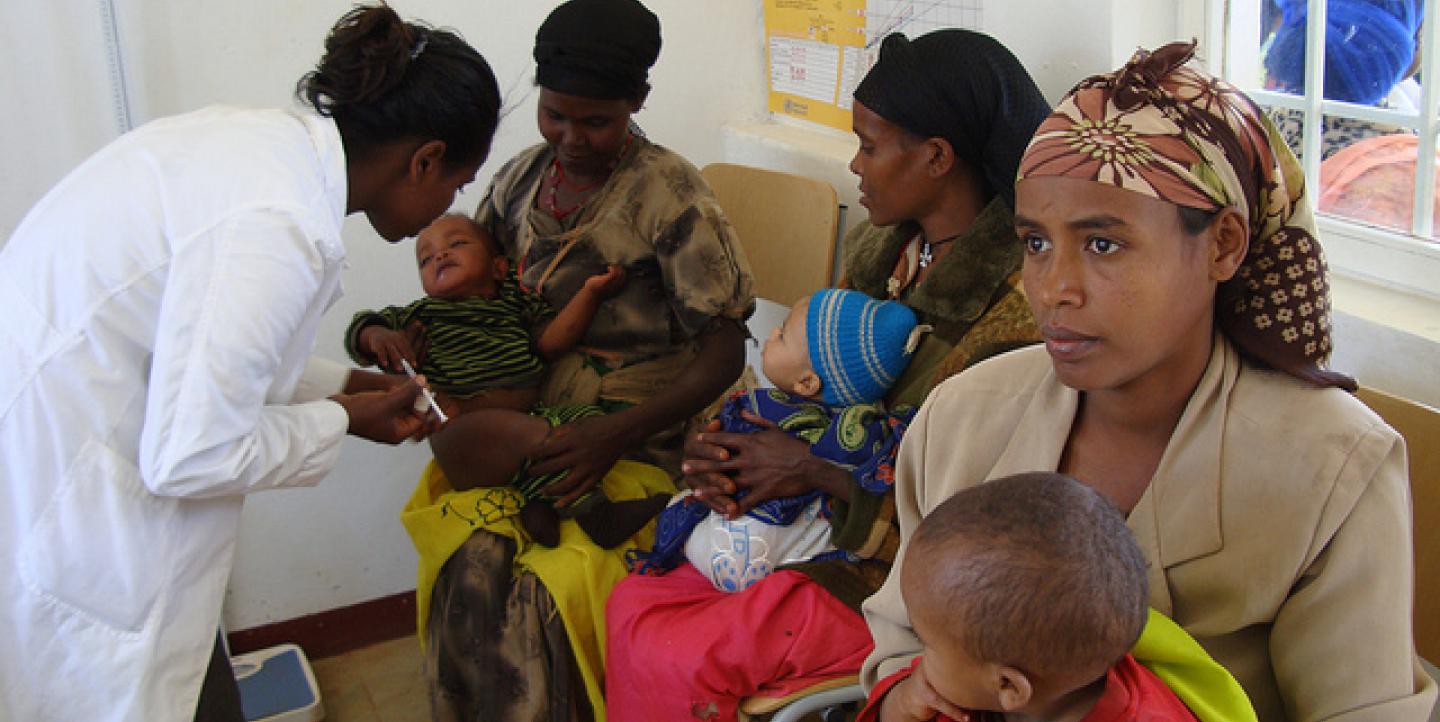Inspiring Ethiopian journalists to write health stories may sound easy, but in a country where the media compete to cover crime, sport and entertainment, health is usually the last topic of choice.
Ambaw Belete, a community engagement specialist with the nonprofit organization EngenderHealth Ethiopia, says journalists only visit health centers for news when there is an accident or pandemic. He recommends strengthening the link between media and health service providers. The magical link, in this case, is quality health reporting at the community level.
In fact, improving the quality and quantity of health reporting through training and mentorship has been the objective of my Knight International Journalism Fellowship. That is why I started working with the Ministry of Health and EngenderHealth Ethiopia to make health reporting a priority for community radio journalists in the country.
Organizing trainings and mentorship for community radio journalists offered me both an opportunity to work for the betterment of health coverage and the challenge to empower community radio journalists to write quality health stories that scrutinize policy and implementation in their communities. True, health service demand and service improvement cannot be attributed entirely to radio shows, but good coverage reinforces health messages and prompts discussion among family and community members.
Megertu Tullu lives in East Wellega Zone, Sasiga locality. “I waited for about 12 years to raise the issue of limiting the number of our children to my husband. I simply did not know how to start the discussion. One day my husband was at home tuning in to a community radio. The journalist was speaking about family planning and I told myself this is the right time to start the conversation, then it struck,” says Megertu.
Like Megertu, who is now free to discuss family planning issues with her husband, most people depend on community health radio shows to trigger discussions among family members. EngenderHealth Ethiopia conducted a review in 66 health centers in three selected regional states to see the effects of trainings and mentorship organized for community radio journalists. About 400 women were asked during the review if they listen to health radio shows; 86 percent of them said they heard family planning messages from community radio.
According to Belete, whose focus at EngenderHealth Ethiopia also includes behavior change, trainee journalists from 19 community radio stations helped to ensure wider media coverage of largely ignored health issues. New health radio shows also have been launched at some community radio stations.
Sisay Wake is radio programs director at HaU FM 91.5 - a Haramaya University- (HaU) owned radio station that broadcasts in Amharic and Oromifa languages. Following trainings on basic health reporting three years ago, Sisay launched weekly health radio shows in the two languages mostly covering reproductive health issues such as pregnancy, risky behavior, safe sex and safe abortion.
According to Sisay, these radio shows help university students and young people in the Haramaya area understand reproductive health and make informed decisions. He says the radio show conveys information that triggers more demand for reproductive health services, and that the number of university dropouts due to unwanted pregnancy have been reduced since the radio shows were launched.
Media houses with existing health shows start to improve their content and format in order to attract larger audiences. Ambaw says that prior to the trainings and mentorship, journalists only asked for data and documents to write health bits, but now they demand to go out to the community and service providers to look for real stories.
One of the trainees, Mesfin Aragei from Dessie, Amhara Regional State, agrees with Ambaw’s assertion. Mesfin produced a piece about free institutional delivery care for his organization. He challenged health service providers who demand that pregnant women pay service fees, then repeatedly covered the issue from different angles, saying the practice was against the national health policy.
Mesfin says his efforts would have failed “if I was not interviewing women who were affected” as well as talking with concerned government officials. Health issues are emerging as primetime stories on community radio, because the more journalists go local with their health stories, the more they are listened to. Looking back over the course of my fellowship, I've gleaned three main takeaways that reiterate why local journalists are the best actors in a community to boost the quality of health news:
- Health-related attitudes and behaviors are greatly influenced by local media. Community journalists can bring taboo subjects such as sexual and reproductive health matters out in the open so they can be discussed.
- Identifying what is relevant to a health story is about considering cultural and traditional concerns of the society. Community journalists have the aptitude to select appropriate personal stories, idioms and words to convey a message most effectively.
- Community journalists can provide sufficient background and context to help the public analyze myths and misconceptions about miracle cures and traditional medicine.
Image CC-licensed on Flickr via Unicef Ethiopia

